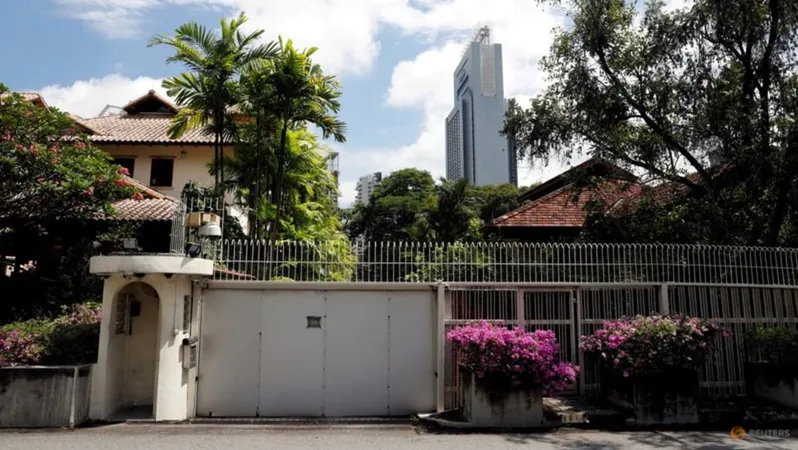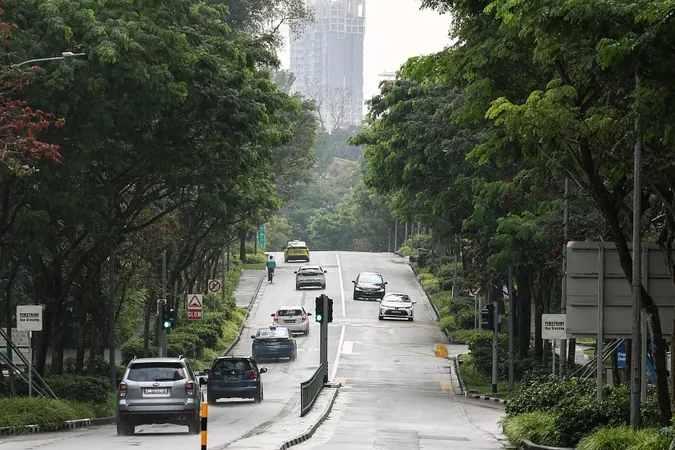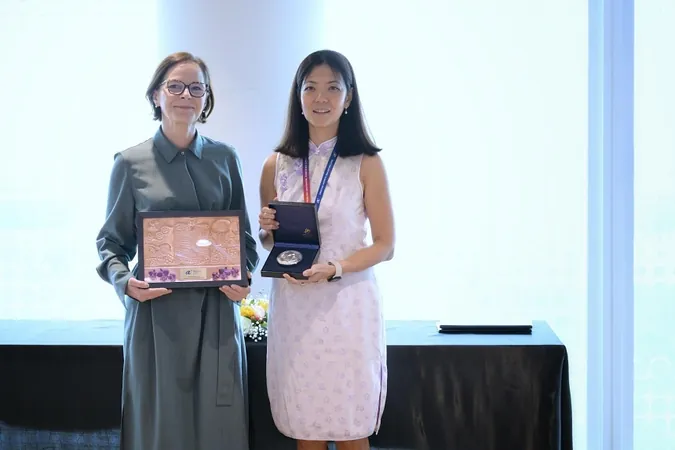
New Preservation Study for 38 Oxley Road Sparks Controversy: Why History Might Hang in the Balance
2024-11-11
Author: Wei
New Preservation Study for 38 Oxley Road Sparks Controversy
In a significant twist in the ongoing saga of 38 Oxley Road, Singapore's former Prime Minister Lee Kuan Yew's residence, Minister for Culture, Community and Youth, Edwin Tong, announced on Monday that a new preservation study is critical. This announcement comes after it was revealed that the findings from a prior assessment conducted by the National Heritage Board (NHB) were never presented to the Preservation of Sites and Monuments Advisory Board (PSM AB).
The situation escalated during a recent parliamentary session when Progress Singapore Party’s Non-Constituency Member of Parliament, Leong Mun Wai, and Louis Chua from the Workers' Party questioned the need for another study. In their inquiries, they pointed out the prior ministerial committee’s acknowledgment of the property’s “architectural, heritage, and historical significance.”
Mr. Tong clarified that while these prior findings played a role in a 2018 report, they did not reach the PSM AB for independent examination. The Minister explained that the committee had determined that no immediate decisions were necessary, thus leaving options open and not submitting the research for advisory evaluation.
The timeline of events surrounding this property serves as a reminder of its historical weight. Following the recent passing of Dr. Lee Wei Ling, the daughter of Lee Kuan Yew, her brother Mr. Lee Hsien Yang announced intentions to apply for the house's demolition. He claims this aligns with their parent's wishes, reinforcing the family's authority over the decision while stressing that he is the sole legal owner of the property.
This new push for a preservation assessment is arguably a response to the urgency created by this impending demolition. Mr. Tong emphasized that NHB must now move quickly to ascertain the property's eligibility for national monument status, which will include presenting the research to the PSM AB for their evaluation.
The historical significance of 38 Oxley Road cannot be overstated; it served as a meeting ground for Singapore’s founding fathers. Notably, influential leaders such as Dr. Goh Keng Swee and Dr. Toh Chin Chye convened in the basement dining room during the tumultuous 1950s, ultimately leading to the establishment of the nation's ruling People's Action Party.
The public interest in this property isn't just a matter of nostalgia; it has ignited fierce debates within Singaporean society about heritage conservation versus private rights. In 2017, Prime Minister Lee Hsien Loong found himself embroiled in controversy when his siblings accused him of leveraging his governmental influence for personal agendas related to the property.
NHB has acknowledged the complexity of the situation, pointing out that multiple future options for the property still exist. Possible scenarios include the full retention of the building, preserving only its essential historical components, or complete demolition. However, the board insists these options are merely starting points for deeper discussions.
As the clock ticks, many wonder whether the government's actions will reflect not only a respect for historical legacy but also an acknowledgment of the family's wishes. The upcoming decisions regarding 38 Oxley Road stand to shape the narrative of Singapore's modern history, setting a compelling stage for what comes next in this intricate drama involving heritage, power, and legacy. Will the nation choose to preserve a piece of its foundational story, or will it let go in accordance with personal family dictates? The answer remains uncertain as stakeholders prepare for the next act in this ongoing saga.





 Brasil (PT)
Brasil (PT)
 Canada (EN)
Canada (EN)
 Chile (ES)
Chile (ES)
 España (ES)
España (ES)
 France (FR)
France (FR)
 Hong Kong (EN)
Hong Kong (EN)
 Italia (IT)
Italia (IT)
 日本 (JA)
日本 (JA)
 Magyarország (HU)
Magyarország (HU)
 Norge (NO)
Norge (NO)
 Polska (PL)
Polska (PL)
 Schweiz (DE)
Schweiz (DE)
 Singapore (EN)
Singapore (EN)
 Sverige (SV)
Sverige (SV)
 Suomi (FI)
Suomi (FI)
 Türkiye (TR)
Türkiye (TR)